HOW TO GET A RESIDENT PERMIT
How to get a resident permit
Are you wondering how to get a residence permit without going through the long and stressful process of complicated paperwork and bureaucratic delays? At ExpressDoxs, we specialize in providing an easy solution for obtaining your Residence Permit Card quickly and easily, all from the comfort of your home.
Our expert team has simplified the entire process, making it easier than ever to get a residence permit online. With just a few clicks, you can start the process and receive your Residence Permit Card without the usual stress and wait time.
Say goodbye to endless red tape and long delays. Order your Residence Permit Card from ExpressDoxs today, and enjoy fast, reliable, and secure service. We ensure that all cards are 100% authentic, legally valid, and delivered directly to your door in record time.
Experience the simplicity of getting your residence permit with ExpressDoxs and enjoy seamless processing and trusted results.
What is a Resident Permit Card
A Resident Permit Card is an official document issued by a country’s immigration authorities that allows a foreign national to live and, in some cases, work within that country for an extended period. It serves as proof of legal residency and is often required for individuals who are not citizens but have been granted permission to reside in the country for reasons such as work, study, or family reunification. The card typically includes personal details, photo, and information about the individual’s immigration status, and it may need to be renewed periodically.
Why you should get your resident permit from us
At ExpressDoxs, we offer a highly reliable and straightforward service with a solid guarantee. We understand that many individuals face unique challenges that complicate the traditional process of securing legal residence in another country. Our specialized service is designed to simplify the entire process, making it easier for you to achieve your goals.
We prioritize the safety and privacy of our clients, ensuring that all personal data is handled with the utmost care. Our service is built on a foundation of trust, and we provide a solid guarantee that your information will be kept secure throughout the process. When you choose ExpressDoxs, you can rest assured that every step of your application will be handled efficiently, securely, and professionally.
Whether you are relocating for work, study, or personal reasons, we make the process seamless and stress-free. With our expert guidance and reliable service, achieving your goals has never been easier.
Get Canadian Resident Permit
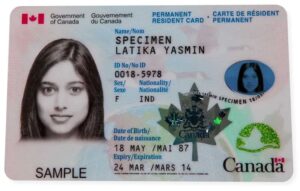
To get a residence permit in Canada, also known as a permanent resident card, you must apply through Immigration, Refugees and Citizenship Canada (IRCC). Common pathways to obtain a residence permit include family sponsorship, skilled worker programs, student visas, and the Express Entry system for skilled immigrants. Depending on the program, applicants may need to provide documents such as proof of work experience, educational qualifications, language proficiency, and financial stability. After meeting the requirements and submitting your application, you may need to attend an interview or medical examination. If approved, you will receive your permanent resident card, granting you the right to live, work, and study in Canada.
How to Get a Residence Permit in US
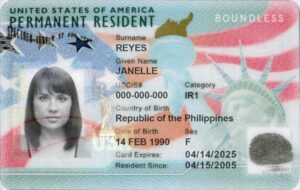
How to Get a Residence Permit in the USA, also known as a Green Card, you must go through a legal immigration process. The most common ways to obtain a Green Card are through family sponsorship, employment, refugee or asylum status, or a diversity visa lottery. The process generally involves submitting an application to the U.S. Citizenship and Immigration Services (USCIS), providing required documentation, and attending an interview. Depending on the category, applicants may also need to go through a medical examination and biometric screening. If approved, you’ll receive your Green Card, granting you permanent residence in the United States.
Get Australian Resident permit
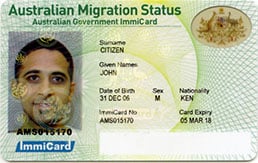
How to Get a Residence permit in Australia, also known as a permanent residency (PR) visa, you must apply through the Department of Home Affairs. Common pathways include skilled migration, family sponsorship, student visas, or the humanitarian program. The process typically involves submitting an Expression of Interest (EOI), meeting specific eligibility criteria such as age, qualifications, work experience, and language proficiency, and receiving an invitation to apply. Applicants may also need to undergo a medical examination and police checks. If your application is successful, you’ll receive a permanent resident visa, allowing you to live, work, and study in Australia.
Get hold of UK resident permit
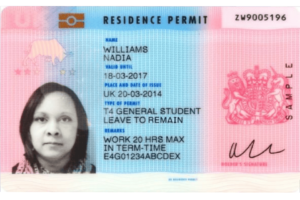
To get a residence permit in the UK, also known as a UK visa, you must apply through the UK Visas and Immigration (UKVI) system. The process varies depending on the type of visa you need, such as for work, study, family reunification, or asylum. Generally, you will need to provide documentation, including proof of employment or sponsorship, financial stability, and, in some cases, meet language proficiency requirements. After submitting your application, you may be required to attend an interview or biometric screening. If approved, you will receive a residence permit allowing you to live and work in the UK for the duration of your visa. Click Here
Obtain German resident permit
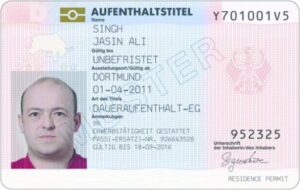
To get a residence permit in Germany, you must apply through the German immigration authorities, typically the local Ausländerbehörde (Foreigners’ Office). Common pathways include employment, studying at a German university, family reunification, or seeking asylum. Applicants generally need to prove financial stability, meet language proficiency requirements, and provide necessary documentation like a job contract or proof of admission to a university. Depending on the type of permit, you may also need to undergo a medical examination. Once approved, you’ll receive a residence permit, allowing you to live and work in Germany for an extended period.
Get Italian resident permit

To obtain a residence permit in Italy, you must apply through the Italian Ministry of the Interior or the local police station (Questura). Common pathways include work permits, student visas, family reunification, or the elective residence visa for retirees. Applicants are required to provide proof of financial means, health insurance, and, depending on the visa type, a job offer or admission to an Italian educational institution. Once your application is approved, you will receive a residence permit that allows you to live and work in Italy for the duration of your visa.
Get hold of French resident permit
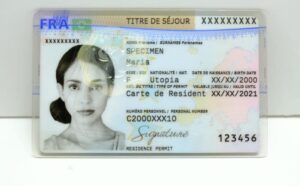
To obtain a residence permit in France, you must apply through the French Immigration and Integration Office (OFII) or your local prefecture. Common pathways include employment, student visas, family reunification, or seeking asylum. Applicants need to provide proof of income or financial support, health insurance, and in some cases, proof of accommodation. Depending on the type of residence permit, you may also need to demonstrate proficiency in the French language. Once your application is approved, you will receive a residence permit that allows you to live, work, or study in France for the duration of your visa.
Obtain Spanish resident permit
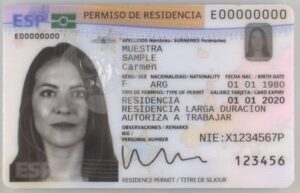
To obtain a residence permit in Spain, you must apply through the Spanish Ministry of the Interior or the local immigration office. Common routes include work permits, student visas, family reunification, or long-term residency. Applicants generally need to provide proof of financial stability, health insurance, and, depending on the visa type, a job offer or admission to a Spanish educational institution. In some cases, applicants may need to show proficiency in the Spanish language. Once approved, you will receive a residence permit, allowing you to live and work in Spain for an extended period.
Get Dutch resident permit

To obtain a residence permit in the Netherlands, you must apply through the Dutch Immigration and Naturalization Service (IND). Common pathways include work permits, study visas, family reunification, or the highly skilled migrant program. Applicants are required to provide proof of financial means, health insurance, and in some cases, a job offer or enrollment in a Dutch educational institution. Depending on the type of permit, you may also need to meet specific language or integration requirements. Once your application is approved, you will receive a residence permit that allows you to live, work, or study in the Netherlands.
How to Get a Residence Permit

To obtain a residence permit in Belgium, you must apply through the Belgian Immigration Office or the local municipality. Common pathways include work permits, student visas, family reunification, or long-term residence for individuals who have lived in Belgium for a specified period. Applicants typically need to provide proof of financial stability, health insurance, and, depending on the visa type, a job offer or admission to a Belgian educational institution. Once approved, you will receive a residence permit that allows you to live and work in Belgium for the duration of your visa.
A Complete Guide to the Application Process
1. Determine Eligibility
- Research the requirements: Each country has its own set of eligibility criteria for granting a residence permit. These may include factors like employment status, education, family connections, financial stability, or investment potential.
- Check visa options: In some cases, a visa may be required before applying for a residence permit. Ensure you meet all the prerequisites for the specific visa type.
2. Choose the Right Type of Residence Permit
- Temporary or Permanent: Decide if you’re applying for a temporary residence permit (which may be renewable) or a permanent one. Temporary permits are often for work, study, or family purposes, while permanent permits may have stricter requirements.
- Work, Study, or Family: Some permits are specific to employment, education, or family reunification. Make sure you select the one that fits your situation.
3. Gather Required Documents
- Common documents include:
- Passport or national ID
- Proof of employment, study enrollment, or financial stability
- Health insurance
- Criminal background check
- Proof of accommodation
- Language proficiency (if required)
- Check the embassy or immigration website: Each country may have specific documentation requirements.
4. Submit Your Application
- Online or in-person submission: Depending on the country, you may need to submit your application online through the official immigration portal or at a local consulate or embassy.
- Fill out the application form accurately: Provide all the requested information and be honest about your situation.
- Pay application fees: There is usually a fee associated with applying for a residence permit. Ensure you know the amount and the payment method.
5. Wait for Processing
- Processing time: This can range from a few weeks to several months, depending on the country and type of permit.
- Additional requests: The immigration authorities may ask for further documents or clarifications during this time.
6. Attend an Interview (if required)
- Some countries may require an in-person interview as part of the application process. Be prepared to explain your reasons for wanting to reside in the country and provide additional supporting documents.
7. Receive a Decision
- Approval or denial: If approved, you will receive your residence permit. If denied, you may be given a chance to appeal the decision or reapply with additional documentation.
- Receive your residence permit card: Upon approval, you will typically be issued a residence card or permit, which allows you to live and work in the country legally.
8. Maintain Legal Status
- Comply with the rules: Stay compliant with any conditions outlined in your residence permit, such as maintaining employment, staying in a specific location, or renewing the permit before it expires.
- Renewal: If your residence permit is temporary, be sure to renew it before it expires to avoid any legal issues.
9. Permanent Residency (Optional)
- After living in the country for a set number of years, you may be eligible to apply for permanent residency or citizenship, depending on the country’s laws.